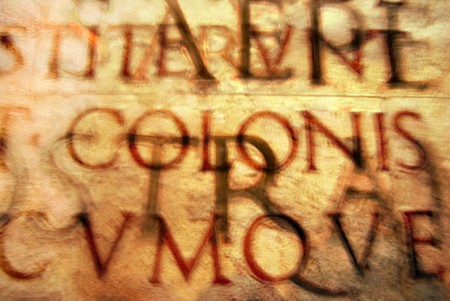Latin roots and Latin words
Before Anglo, Saxons and Jutes came to England, Latin roots and Latin words were already present because of Latin usage by old Germanic tribes. Infact, Roman empire had to teach to Germanic tribes some words in latin for functional purposes.
Most words used in church language originate from Latin.
Look at these Latin words used in old English and how they are used now,modern English.
If you carefully look at these words they are terms used in Government, Military,Trading terms, names of the material used. However, scientific terminologies belong to Greek because after renaissance Greek and Latin were language of learning.....................
Click here GREEK WORDS IN PRESENT SCIENTIFIC TERMINOLOGIES
Some Latin words from 16th,17th, 18th century are still alive in the English language.
Latin root words were introduced in Britain during the time when it was under Roman empire.There are many Latin words which were used in old English and are present in English vocabulary.
Mostly Greek numeric words are used in science vocabulary. Learning there (click here) Greek and Latin prefixes will help you to understand most scientific terms.
LATIN ROOTS----OLD ENGLISH--------------MODERN ENGLISH
Ager-------------------------------Acer--------------------------------Acre
Bestia-----------------------------Beste------------------------------Beast
Caseus----------------------------Ces, Cies-------------------------Cheese
Cista-------------------------------Cist---------------------------------Chest
Gemma---------------------------Gim---------------------------------Gem
Uncia------------------------------Ynce------------------------------Inch
Linea---------------------------------Line-----------------------------Line ( cord)
LATIN WORDS------OLD ENGLISH-----------MODERN ENGLISH
Mille ( Passus)-------------------------Mil----------------------------------Mile
Molina--------------------------------Mylen-----------------------------------Mill
Mango----------------------------Mongari-------------------------Monger
Mulus-----------------------------Mul------------------------------Mule
Pulvinus----------------------------Pyle-------------------------------Pillow
Pinus-----------------------------Pin------------------------------Pine
Portus-------------------------Port---------------------------Port
Pundus--------------------------Pound------------------------Pound
Purpureus--------------------Purpure---------------------Purple
Postis-----------------------------Post--------------------------A Post
( Via) Strata------------------- Stroet----------------------- Street
Tabula--------------------------Tabule------------------------Table
Tigula---------------------------Tigule-----------------------Tile
Vallum-------------------------Weal-----------------------Wall
Vinum------------------------------Win---------------------------Wine
Latin in Church Lingo
Roman missionaries brought Christian culture in England in the form of latin words. In addition people from Ireland, in seventh century carried more latin roots of which some have remained permanently in English vocabulary.
LATIN ( Latin Words)----OLD ENGLISH----------MODERN ENGLISH
Abbadem ( Late L)---------Abbud--------------------------Abbot
(e)Biscopus------------------Biscop-------------------------Bishop
Diaconus------------------Doecna-------------------Deacon
Monachus----------------------Munuc----------------------Monk
Monasterium------------------Mynstre-------------------Minster
Nonna--------------------Nunne-----------------------Nun
Presbyter-----------------Preost-------------------Priest
Templum-------------------Templ-------------Temple
A major portion of Latin words in old English are not exactly influenced from Latin Christianity but, because of revitalization of church life in the tenth century. This change inturn influenced literature and science in that period.
Most of Latin word in old English are alive in a morphed form, but words since 1500 i.e.Modern English period are main direct influences from Latin and remain unchanged:
|
Sixteenth Century Exit Genius, Area, Fungus Miser Circus Vacuum Medium Species Ignoramus Vagary Eighteenth Century Nucleus Inertia Alibi Ultimatum Extra Insomnia Bonus ( noun) Via ( preposition) Deficit |
Seventeenth Century Torpor Specimen Arena Apparatus Focus Album Complex Minimum Status Lens Pendulum Nineteenth Century Opus Ego Moratorium Referendum Bascillus |
Return to English Vocabulary

FREE E-BOOK-Latin and Greek Word Roots
Now download Right-click to download the PDF.Oxford English Dictionary publishes new word updates and revised word meanings, on March, June,September and December every year. For instance, in March 2012, it added:
bit bucket n. An An imaginary trash location, example, "it fell into the bit bucket" means the data was lost.
Click here Contact me for mailing you daily updates on new words
